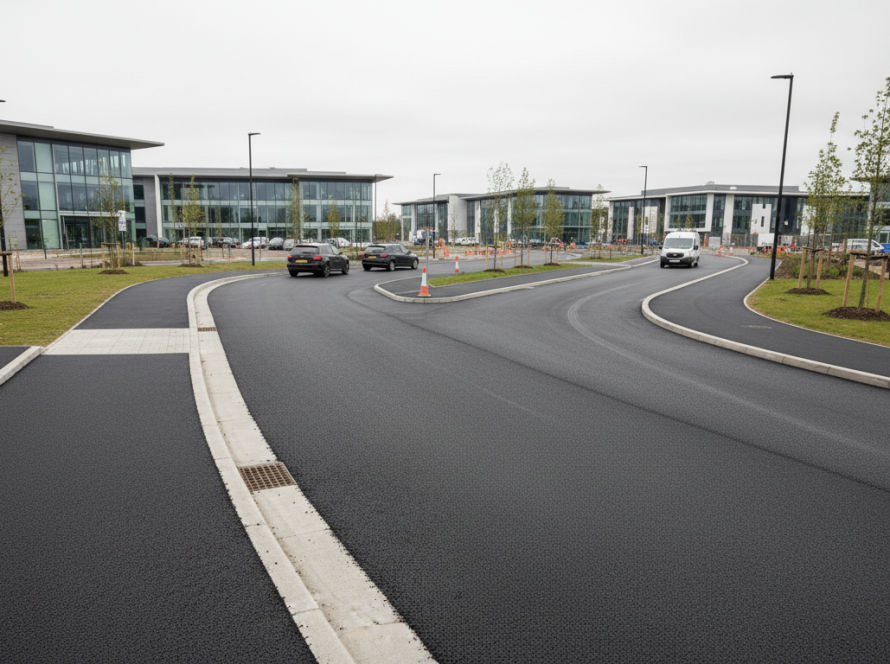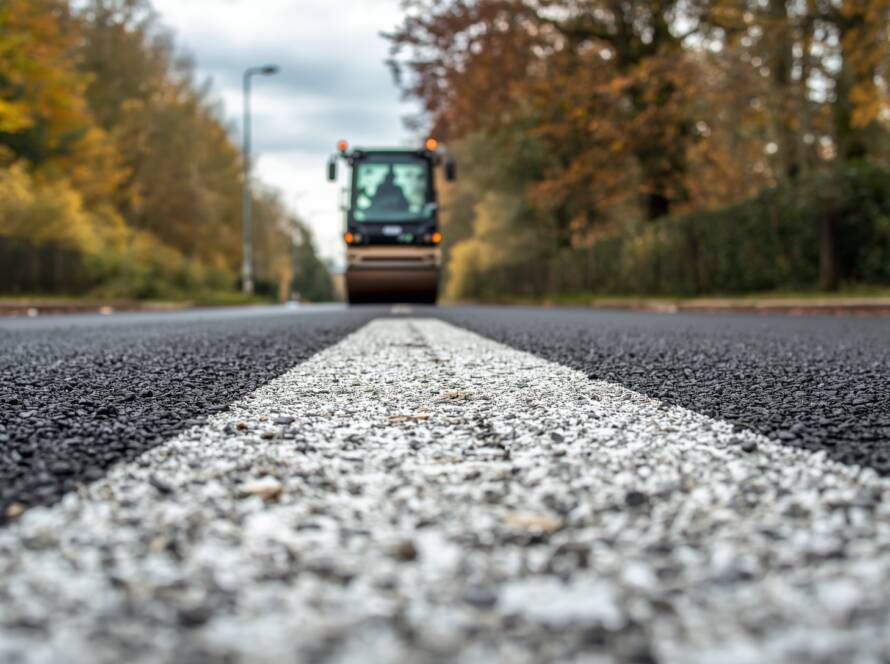The UK’s changing seasons can be tough on roads and outdoor surfaces. From heavy rain and frost to summer heat and UV exposure, each season affects the performance and lifespan of tarmac and resin surfaces differently.
That’s why seasonal road maintenance is essential. It helps prevent long-term damage, improves safety, and protects your investment — whether it’s a private driveway, car park, or commercial access road.
Let’s explore how weather impacts surface performance and what proactive steps can keep your roads and driveways in top condition year-round.
1. How Winter Weather Affects Road Surfaces
Cold weather is one of the biggest challenges for any surface.
During winter, moisture seeps into small cracks and freezes overnight, expanding and widening those cracks — a process known as freeze–thaw damage. Over time, this leads to potholes, crumbling edges, and structural weakening.
To prevent winter deterioration:
- Repair minor cracks and surface defects before freezing conditions.
- Ensure proper drainage to stop standing water.
- Apply protective seal coats to resist water penetration.
Regular inspections before winter can save thousands in repair costs later on.
2. Spring – The Season for Surface Repairs
Spring is the ideal time to carry out maintenance and resurfacing.
As temperatures rise and the ground dries, it becomes easier to apply new surface layers or repair winter damage. This is when professional contractors recommend machine lay tarmac resurfacing for larger areas like roads, car parks, and commercial sites.
Machine-laid tarmac offers a smooth, consistent finish that stands up to traffic and weather stress — making it the go-to method for long-term durability.
Learn more about how this method ensures quality at scale:
3. Summer Sun and Surface Softening
While the sun might seem harmless, high summer temperatures can soften tarmac and resin surfaces.
For tarmac, this can cause light deformation or surface bleeding. For resin-bound surfaces, UV exposure may fade colours if non-UV-stable materials were used.
To maintain performance:
- Avoid parking heavy vehicles on soft surfaces during heatwaves.
- Keep the driveway clean to prevent oil or tyre marks from bonding.
- Choose UV-stable resin-bound surfacing during installation to ensure long-term colour retention and surface integrity.
Explore the benefits of this modern, heat-resistant option here:
4. Autumn Maintenance – Preparing for the Cold Ahead
Autumn may not seem as harsh, but it’s the season to prepare.
Falling leaves, dirt, and organic debris can block drains and hold moisture on the surface — leading to moss growth and reduced grip.
Regular sweeping, clearing gutters, and checking drainage ensure water flows freely once the rain and frost return. Applying a light surface treatment or sealant before winter can also add a layer of protection against cold damage.
5. Year-Round Maintenance Tips
Keeping surfaces in excellent condition requires consistent attention throughout the year. Simple, proactive maintenance can greatly extend lifespan and reduce repair costs.
Here are a few universal tips:
- Inspect regularly: Look for cracks, soft spots, and drainage issues.
- Clean often: Remove debris and prevent moss or oil buildup.
- Resurface as needed: Schedule resurfacing every few years for heavy-use areas.
- Use professionals: Always rely on certified contractors for resurfacing and sealcoating.
6. Why Choose Total Surfacing
At Total Surfacing, we provide year-round solutions for road, driveway, and car park maintenance.
Our experienced team delivers high-quality tarmac and resin-bound surfacing designed to handle every season — from freezing winters to hot, dry summers.
We use advanced machinery, premium materials, and precision techniques to ensure every project stands the test of time. Whether you need new surfacing, resurfacing, or seasonal repairs, we tailor every service to your site’s specific needs.
Conclusion
UK weather may be unpredictable, but with proper seasonal road maintenance, your surfaces don’t have to suffer. By preparing for each season, scheduling regular inspections, and choosing the right materials, you can keep your surfaces safe, durable, and visually appealing all year round.


